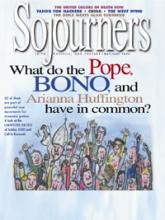In spring 1995, before the debt crisis was a front-page story, a small group of people representing mainline Protestant churches, peace churches, and Catholic orders and organizations met in Washington, D.C., to brainstorm about creative and effective ways that the U.S. church community could challenge the policies of the international financial institutions. The upstart, ad-hoc group named itself the Religious Working Group on the World Bank & IMF (RWG).
The mandate of the RWG—most of whose members had close contact with people living and working in the "Two Thirds" World—extended across a spectrum of economic justice issues, particularly structural adjustment programs and the debt. However, members soon realized that the crushing debt of the world’s most impoverished countries was a priority and deserved extra attention. They also realized that to continue their work on debt, a strategy needed to be created that would include a broader base than Christian churches. Many members of the RWG were in contact with the coordinators of the Jubilee 2000/UK campaign, and when the British appealed to the folks in the United States to pick up the Jubilee banner, the RWG complied.
At the June 1997 G7 meeting in Denver, when the world’s seven richest countries gathered to discuss the world economic system, RWG members and others concerned about debt cancellation announced the formation of the Jubilee 2000/USA campaign. By December 1997, a campaign platform had been written, additional organizations recruited to join, and the first staff person hired.
Read the Full Article
